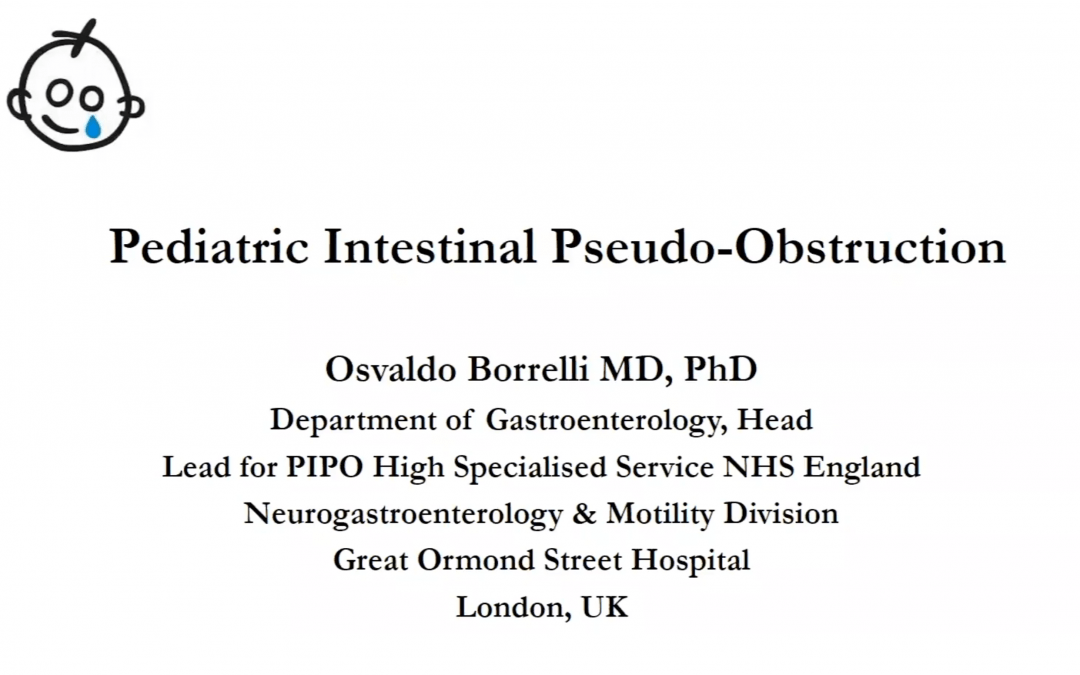
Paediatric Intestinal Pseudo-Obstruction – Osvaldo Borrelli
This page is restricted to BSPGHAN members.
Please login.

This page is restricted to BSPGHAN members.
Please login.

This page is restricted to BSPGHAN members.
Please login.

More evidence has emerged that shows there is a very low risk of children becoming very unwell from COVID-19, even for children with existing health conditions. Most children originally identified as clinically extremely vulnerable no longer need to follow this advice.
The RCPCH has been reviewing the evidence base around the impact of Covid-19 or SARS-CoV-2 infection on children and young people with comorbidities which has been developing over time. They have worked with paediatric specialties to review this evidence and advise on which children and young people are at the highest risk of severe disease due to Covid-19 infection because they are ‘clinically extremely vulnerable’ (CEV).
Those children whose doctors have confirmed they are still clinically extremely vulnerable are advised not to attend school while this advice is in place. Children who live with someone who is clinically extremely vulnerable, but who are not clinically extremely vulnerable themselves, should still attend school in accordance with the general advice and regulations set out in the national restrictions guidance from 5 November.
BSPGHAN advises that the vast majority of children and young people that we care for are not considered clinically extremely vulnerable either because of their condition or therapies, and can go to school during this lockdown. Children who are usually CEV under normal (non-pandemic) circumstances should not attend school and these families will be contacted by their specialist team. Families should continue to follow the Government advice on national restrictions.
In exceptional circumstances some patients on HPN, because of other coexisting factors may fall into the clinically vulnerable group and would be notified by their specialist teams.
Children who meet one or more of the following criteria may be discussed on an individual basis, but the majority will not be CEV:
In view of the continuous evidence and increasing knowledge in the COVID-19 pandemic and its minimal impact on children and young people (under 18 years of age) with liver disease and those post liver transplant we have undertaken an update on our advice.
We identified patients who are ‘clinically extremely vulnerable’ due to the risk of severe disease caused by SARS-CoV-2 infection and categorised them in 2 groups.
All children and young people are currently encouraged to adhere to the government advice on social distancing but continue to attend school/college, unless advised otherwise by their clinical team.
As per standard advice prior to the pandemic patients in Group A and some in Group B would have been advised from time to time to not attend school due to their clinical condition or the treatment required to manage it. Similarly, their families and households would be advised to take extra care around hygiene and infectious contacts.
Families can contact their respective Paediatric Liver Centre and discuss their concerns at any point should they feel their circumstances do not fit into any of the below categories. The guideline provided here is advisory only and not compulsory and as such families can make their own decisions.
Group A
Group A lists conditions that mean a child or young person is CEV and they should practice stringent social distancing.
Group B lists conditions who are not CEV but if the individual patient is considered to be exempt by their respective paediatric liver centre that can be discussed on an individual case basis.
The majority of children with conditions listed in Group B will NOT be CEV.
Liver disease who meet one or more of the following criteria:
Education settings
Those children whose doctors have confirmed they are still clinically extremely vulnerable are advised not to attend school while this advice is in place. Your school will make appropriate arrangements for you to be able to continue your education at home. Children who live with someone who is clinically extremely vulnerable, but who are not clinically extremely vulnerable themselves, should still attend school.
Author : Liver Steering Group November 2020
IBD Working Group
British Society of Paediatric Gastroenterology, Hepatology and Nutrition (BSPGHAN)
Coronavirus (SARS-CoV-2) and COVID-19 in children with IBD
Position Statement: Update to guidance for attending school/college for children and young people with IBD – November 2020
The UK government has announced a 4-week lockdown from Thursday 5th November. During this time, it is planned that schools and colleges will remain open. This information is intended to summarise the national guidelines. The advice here is subject to change and local restrictions may be enforced.
The previous BSPGHAN IBD working group statement from the 31/08/2020 recommended that the majority of paediatric IBD patients attend school/colleague. This is supported by data from the SECURE-IBD database which so far registered 284 cases of COVID-19 in patients with IBD aged 0-19. There have been no deaths and the intensive care admission rate was only 1% which is hugely reassuring.
The overall risk for COVID-19 related complications appear extremely low regardless of clinical phenotype or therapy and we therefore agree with the recently published RCPCH statement that none of the paediatric IBD patients automatically classify for the highest risk group: ‘clinically extremely vulnerable’ (CEV).
An IBD patient might be considered CEV particularly in individuals with moderate to severely active disease not controlled by immunomodulator monotherapy or combination therapy with immunomodulator and biologic. A discussion with their paediatric gastroenterology team is required to determine CEV status and specific precautions for each individual. Children and families should be at the centre of this process. We recognise that there may be considerable concern and anxiety for this small group of children, young people and their families. This is the consensus advice from the RCPCH and the UK Government.
ATTENDING SCHOOL:
All children with IBD are recommended to continue attending school/college with the exception of a very small group of children who have been identified as CEV and deemed unsafe to attend by their paediatric gastroenterology team (see above). This will need to be assessed on an individual case by case basis, always prioritising patient safety.
ADDITIONAL POINTS:
This IBD Working Group Statement is based on data available up to the 3rd of November 2020. More evidence of PIBD and the SARS-CoV-2 pandemic will emerge requiring updates. This document is a working group statement/recommendation and not evidence-based clinical guidance. The approach to PIBD patients in the SARS-CoV-2 pandemic might vary due to different individual trusts’ policies.
Author: Dr James Ashton on behalf of the IBD Working Group, BSPGHAN, 3rd of November 2020
Core References and Web-Links
https://www.cicra.org/news/coronavirus/
BSPGHAN November 9th, 2020


Contact Us l Privacy Policy l Members Login
© 2021 British Society of Paediatric Gastroenterology, Hepatology and Nutrition l Charity Number 299294 l VAT registration number 323665308